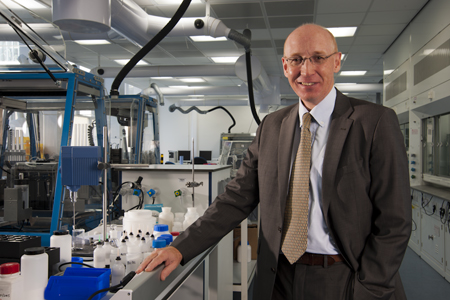Researchers at the University of Liverpool are pioneering a project to synthesize and validate the world’s first nanomedicine to treat HIV/AIDS.
 Professor Steve Rannard from University of Liverpool
Professor Steve Rannard from University of Liverpool
The objective of the project is to develop effective, economical medicines that can be easily administered to infants and children accompanied by limited side effects. The project which is estimated to cost £1.65 million is being funded by the Engineering and Physical Sciences Research Council (EPSRC).
The new treatment method builds upon existing HIV treatment option called antiretrovirals (ARVs). Drugs at the nanoscale have been found to be accepted in small doses in various disease areas. This offers the potential to diminish the side effects of drugs and resistance to drugs. The researchers at the University succeeded in synthesizing ARV particles at the nanoscale that has the capability to diminish the variability in patient response to treatment and toxicity effects.
According to Professor Steve Rannard from the Department of Chemistry at the University of Liverpool, the project is the first step in bringing nanomedicine treatment options to clinics from the labs. The nanomedicine will be initially tested on healthy volunteers at the Royal Liverpool University Hospital. Based on the success of this clinical study, the University’s collaborative partner, IOTA Nanosolutions would conduct the clinical assessment of the ARV nanoparticles in HIV patients. The new drug will also be tested on children from developing nations. The data gathered until now indicates the potential of the new ARV treatment to control the HIV virus by means of reduced dosages. The cost of treatment will also be reduced.
The lack of sufficient HIV drugs suitable for children and the risk associated with existing drugs such as over and under dosing, make the new nanoparticle drug a promising treatment option for children, especially due to its ability to disperse in water making it easy to administer.